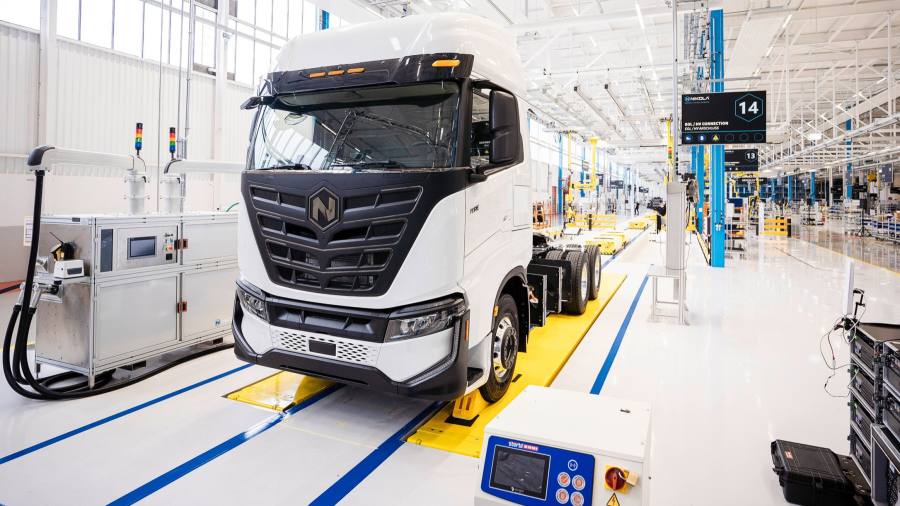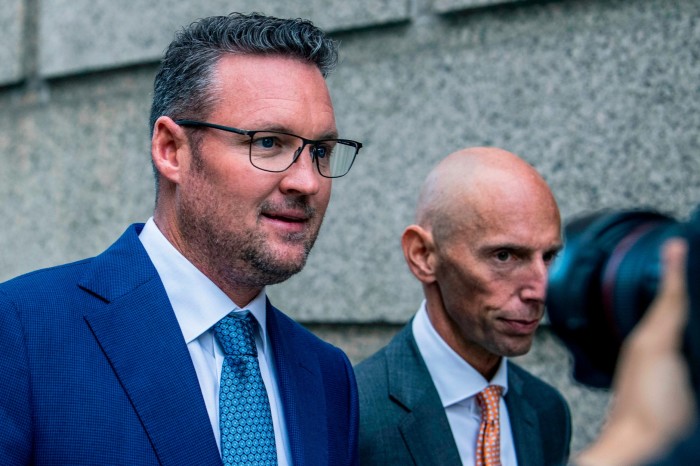
Receive free Electric vehicles updates
We’ll send you a myFT Daily Digest email rounding up the latest Electric vehicles news every morning.
Nikola is heading for a showdown this week with its founder, Trevor Milton, who was convicted of securities fraud last year, after he urged other shareholders to reject the electric truckmaker’s latest effort to raise cash.
Milton, who owns about 7 per cent of the company, making him Nikola’s largest shareholder, said on Instagram last month that he voted against the company’s proposal to double the amount of shares it is allowed to issue. He encouraged other shareholders to do the same. Nikola set a July 5 deadline for shareholders to vote on the new stock.
“The company does not need new shares, they need new leadership,” Milton said in his June 15 post.
The fight erupted after the company failed to win shareholder support for the stock issuance at its annual meeting in June. Nikola has said if a majority do not vote for the new shares its liquidity position could suffer.
Nikola’s share price closed at $1.38 on June 30, down from $4.72 a year ago. In 2020, the company briefly boasted a higher valuation than Ford before plummeting after a report by short seller Hindenburg Research called the company “an intricate fraud”.
Nikola last year was forced to extend voting after its annual meeting to drum up support from investors to issue more shares. Now, “[shareholders] might be upset they have had to face several rounds of dilution and put their collective foot down,” said Michael Shlisky, a managing director at DA Davidson.
Nikola declined to comment, but said last month that Milton had violated his separation agreement by urging shareholders to vote against the company’s intentions.
Marc Mukasey, Milton’s attorney, said his client declined to comment. Milton, who is scheduled to be sentenced on September 22, could not be reached independently for a response.
Nikola’s fifth-largest shareholder, the $1.3tn Norwegian oil fund, said in a statement to the Financial Times that it voted for the additional shares.
The company has more than 700,000 individual shareholders, making it harder for it to secure the necessary votes. Although he is Nikola’s largest shareholder, Milton cannot block the company’s effort to issue shares on his own.
If shareholders do not approve the new shares by July 5, the company could try to extend voting again, Shlisky said. “Eventually they are going to be in need of new capital,” he said. “It is fair to say that the cash continues to burn.”
Electric vehicle start-ups, including Nikola, attracted significant investment several years ago when many went public through special purpose acquisition vehicles. Since then many have struggled with the realities of manufacturing at scale. Rivian, boasting the largest market capitalisation of the new EV players, plans to produce 50,000 trucks this year after slashing production targets last year. Lordstown Motors filed for bankruptcy on Tuesday.
Nikola has had a particularly wild ride. Following the short seller’s report, federal prosecutors launched an investigation of Milton. Last October a jury convicted him of misleading investors about the company’s technology in order to drive up the share price.
The company began manufacturing its battery-powered Tre truck last year, shipping 131 to customers and another 31 in the first quarter. It reported a $169mn net loss and $132mn in cash at the end of March.
The company has been cutting costs. It said last month it would lay off about 270 people, roughly split between the US and Europe, in a bid to save $50mn annually. In May, truckmaker Iveco bought Nikola out of the companies’ joint venture for $35mn.
Nikola plans to start commercial production in July of a truck powered by hydrogen fuel cells. It suspended production of its battery-powered truck in May to prepare its Arizona factory to make the new product.
The drama between Milton and Nikola “is like a movie. It is so strange,” said Shivaram Rajgopal, an accounting professor at Columbia University. “You destroy value and now new management is trying to fix this and you get in the way,” he said, referring to Milton.
